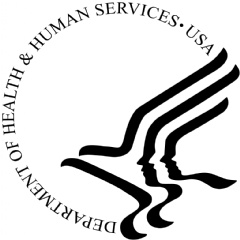HHS Awards $90 Million to Support Health Centers in Addressing Hypertension Among Racial and Ethnic Minorities
Today, the U.S. Department of Health and Human Services (HHS), through the Health Resources and Services Administration (HRSA), awarded nearly $90 million in funding to 496 health centers across 48 states, the District of Columbia, Federated States of Micronesia, Puerto Rico, Palau, and the U.S. Virgin Islands. HRSA-funded health centers will use these funds to increase the number of patients diagnosed with hypertension who have controlled blood pressure.
“Nearly 30 million people rely on HRSA-funded health centers for care, of which nearly 18 million are racial and ethnic minorities,” said HRSA Administrator Tom Engels. “The Health Center Program provides essential services for our nation’s most vulnerable and medically underserved populations—those who often do not have access to quality care. This means our health centers are uniquely positioned to be at the forefront of efforts to improve heart health and reduce disparities in COVID-19 outcomes among racial and ethnic minority communities by increasing the number of hypertensive patients with controlled blood pressure.”
Today’s funds will support HRSA-funded health centers that could benefit the most from assistance to improve blood pressure control. The three-year project will include the use of self-measured blood pressure (SMBP) technology to increase the number of adult patients with controlled hypertension. SMBP, also known as home blood pressure monitoring, can improve access and quality of care for patients with hypertension while making blood pressure monitoring more convenient.
These awards are part of the National Hypertension Control Initiative: Addressing Disparities among Racial and Ethnic Minority Populations (HTN Initiative), a partnership between HRSA and the HHS Office of Minority Health (OMH). Given the association of hypertension with more severe COVID-19 outcomes and chronic cardiovascular disease, the HTN Initiative seeks to implement evidence-based interventions that improve both cardiovascular health and COVID-19 outcomes nationally for racial and ethnic minority populations.
“Racial and ethnic minority populations have experienced worse COVID-19 outcomes, from more hospitalizations to more deaths,” said HHS Deputy Assistant Secretary for Minority Health RADM Felicia Collins. “By joining forces with HRSA’s Health Center Program and the American Heart Association, we will address long-standing racial and ethnic disparities in blood pressure control that are contributing to the disparate impact of COVID-19 within our communities of color.”
As another component of the HTN Initiative, HRSA and OMH are co-funding a HTN Initiative training and technical assistance provider, the American Heart Association (AHA), through a separate award. AHA will provide participating HRSA-funded health centers with support in provider training, patient education, and program evaluation.
For 55 years, health centers have delivered affordable, accessible, quality, and cost-effective primary health care services to patients. Today, nearly 1,400 health centers operate nearly 13,000 service delivery sites nationwide. To locate a HRSA-funded health center, visit: https://findahealthcenter.hrsa.gov/.
For a list of today’s award recipients, visit: https://bphc.hrsa.gov/program-opportunities/national-hypertension-control-initiative/fy2021-awards.
For more information about National Hypertension Control Initiative Supplemental Funding for Health Centers, visit https://bphc.hrsa.gov/program-opportunities/national-hypertension-control-initiative.
For more information on the HTN Initiative, visit https://www.minorityhealth.hhs.gov/hypertension.
###( Press Release Image: https://photos.webwire.com/prmedia/5/269180/269180-1.png )
WebWireID269180
This news content was configured by WebWire editorial staff. Linking is permitted.
News Release Distribution and Press Release Distribution Services Provided by WebWire.
